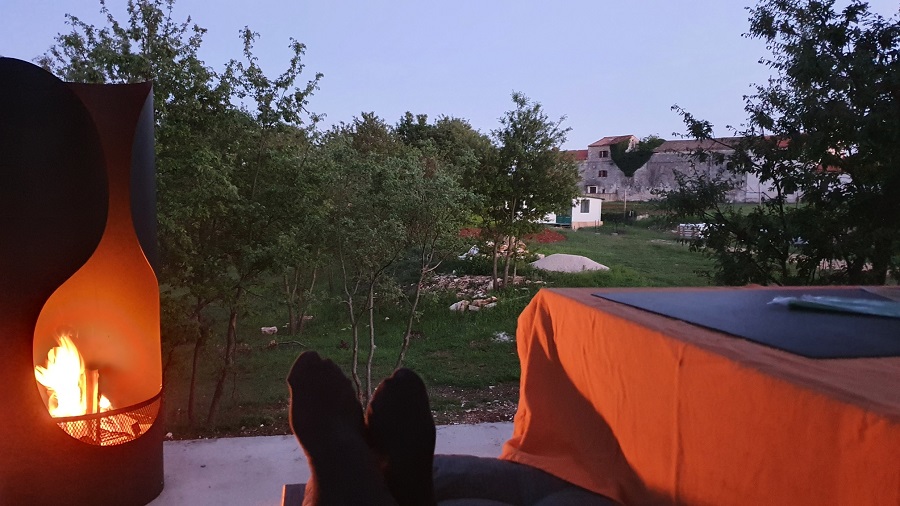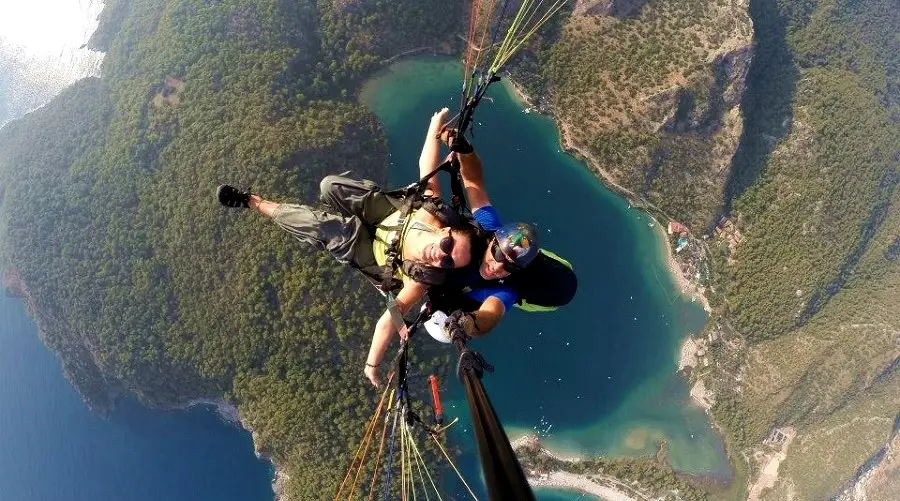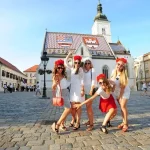My name is Ljubica, born and raised in Croatia, in the lovely Samobor area. Being a teenager in the 90s in Croatia, I always thought – there must be a less toxic place where people are positive and embrace differences. I put in a lot of effort and grabbed the first possible occasion, which took me to Hong Kong when I was 30 years old. A few years later, I abandoned the profit business and started from scratch in the aid sector, where I spent almost a decade on and off, alternating working and travelling around the world… until 2017, when I decided to abandon a nomadic lifestyle and settle in Croatia, Istria.
1. You made the switch to Croatia. Tell us a little about the decision process and how long it took for you to get on the plane.
In my 30s, I thought I could settle in several places around the world I loved, but after 70+ countries visited and about a dozen I lived in, I figured the Mediterranean is the place to be – weather, food, culture, nature, lifestyle, safety… with family here and Croatian passport in the pocket, picking Croatia made sense.
2. What did your family and community back home think of your decision at the time?
Croatia was still my primary home, and important people were happy I am finally coming back.
3. Where did you get your information about the realities of Croatia prior to coming?
I kept in touch, and I observed progress, which was encouraging.
4. What were you most nervous about making the switch? What was your biggest fear, and what was the reality of what you found?
Growing differences with my existing community in Croatia and, on the other side, a lack of differences (diversity) in Croatian society.
Being away for over a decade, even though I regularly made enormous efforts to meet everybody I could each time briefly visiting Croatia, I knew it would feel different once I am back. Making appointments became more difficult and some of those relationships simply diluted…which was kind of normal and okay, being in my early 40s and becoming aware that all we need is “mali krug, velikih ljudi” (small circle, big people).
On the other hand, I like to meet new, different and interesting people who also travel the world, embrace differences, cherish what they have and grab life by the balls (rather than just whining). The growing expat community is great news, so I managed to connect and make some new friendships.
5. Think back to the time before you arrived. What were your perceptions about Croatia, and how were they different from the reality you encountered?
While I was well aware of possible obstacles, it did disappoint with how severely inefficient Croatian administration and regulations are. I could have easily picked any place on the planet to live in but decided to come back to Croatia. Being in my prime age, educated, experienced, focused, persistent and with money to invest, I struggled for 3 years to kick off my project. A tiny retreat on my one-acre land in Istria was the idea.
Legal and administrative obstacles were insane. One issue was ping pong between the municipality and county, whereby each one says, “go and ask the other one”. No clear statements and guidelines. Another one was that for such a project, I needed to please three different ministries with their regulations while the regulations of each ministry are ambiguous and then contradictory between those three. Loads of meetings and email correspondence with highly ranked officials also didn’t help. Sometimes when I reached a relevant person, I figured this person was stuck in the 80s and had no experience or capacity to do their job.
… This brings us to the next worst obstacle – many (not all) people working in Government offices, besides not being professionally equipped, have a very common (and very wrong) approach – and that is behaving like we are here because of them, and not vice versa. Our notorious “uhljeb” model.
6. You are still here, so obviously, the pros outweigh the cons. Tell us about some of the things that you love about being in Croatia, as well as some of the things you don’t like.
I love that I can show up at my neighbour’s door to borrow a few eggs. I love when the staff in the pet shop sits with my dog when I go to grab groceries. I love how we exchange and share goodies in the village. I love that visiting amazing and diverse places across Croatia takes only a few hours of driving. I love the fact that I can leave my house key (in case of emergency) with a neighbour when I travel. I love to host my international friends visiting, who, all without exception, find Croatia amazing. Because it is.
What I don’t like is already mentioned in the article but in general, what hurts most is that we have a country with amazing opportunities, and we just can’t handle all those incredible resources we have. But, I believe in the young generation and am positive they will make changes as soon as old farts step down.
I fully support young people leaving Croatia and seeing the world, getting new skills and opening their minds, but we need to find a way to bring them back. It was easier for me because I was single, but if I had my own family, I’m not sure Croatia would be the final pick…
7. What advice do you have for others thinking about making a move from the diaspora?
Be aware of heavy administration and equip yourself with a lot of patience. As much as you would think that you should be invited and welcomed with your qualities to the country that clearly needs “fresh blood”, there is a massive lack of community benefits perspective. It mostly comes down to individuals and their personal interests. Very sadly, Croatians are known to be very tolerant of corruption, but please, do not support that.
Another one is very common around the world – as most of you would probably come from more developed countries and with some capital to invest, many locals will think that you have an unlimited budget. Do your research before closing the deals. Not only as prevention of getting ripped off but simply because nonchalantly paying more (just because you can) means overall prices inflating, which can badly affect local people with fewer resources.
8. How do you think Croatia can better assist those who are looking to return to the Homeland?
Easier investment opportunities from every perspective. It is abnormal that once you paid the full amount, you need to wait for a HEP electricity connection for ten months, even with regular follow-ups through all possible channels. Cut the heavy administration, which, if done well, should make it more efficient. We don’t need “uhljebs” who actually serve their own purpose while making people’s lives more difficult with their incompetence and unprofessionalism

****
Thanks Ljubica!
You can follow more stories in the Croatian Returnee Reflections series in our dedicated TCN section.
Would you like your returnee story – positive or negative – to be featured in this series? Contact [email protected] Subject Returnee.
****
What is it like to live in Croatia? An expat for 20 years, you can follow my series, 20 Ways Croatia Changed Me in 20 Years, starting at the beginning – Business and Dalmatia.
Follow Paul Bradbury on LinkedIn.
Croatia, a Survival Kit for Foreigners will be out by Christmas. If you would like to reserve a copy, email [email protected] Subject 20 Years Book











